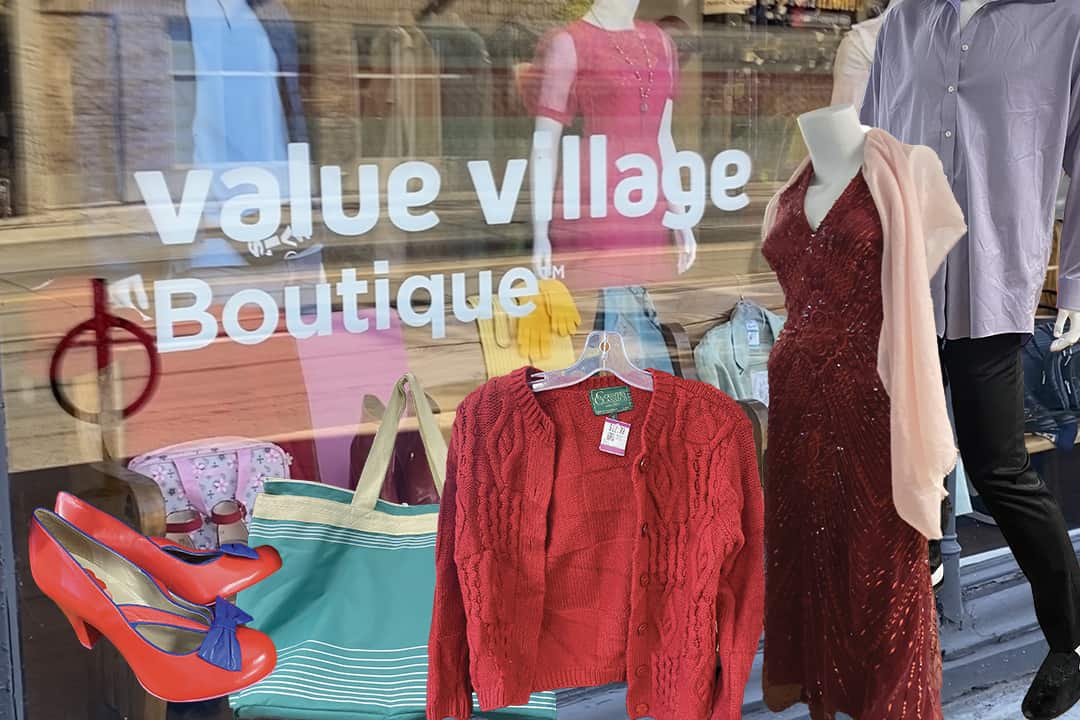Toronto’s busy and bustling Queen Street is home to a myriad of eclectic fashion shops, ranging from luxury stores to more affordable shops. As the summer comes to an end, these boutiques are flooded with customers shopping for transitional weather while hoping to find the best deals on essential items.
As a student on a budget, it can be difficult to find cheap deals on decent clothing. It seems that affordable yet fashionable items that are worth buying have become harder and harder to come by. What’s more, when it comes to shopping sustainably, prices often seem exorbitant, and second-hand clothing of decent quality has become both unaffordable and elusive.
So, what options do students have when they want to shop sustainably while also staying within their budget?
The fashion world as we know it
Toronto’s fashion scene is marked by trendy and expensive fashion labels such as Prada, Gucci, and Hermes. For people looking for clothes with similar styles but at an affordable price point, fast fashion stores have been a reliable go-to since the early 2000s. Moreover, buying new clothes that look trendy while compromising on quality has become more and more common with social media and influencer marketing.
Although fast fashion clothing has become an often necessary evil to obtain essential items for low- to middle-income households, it is still important to shop sustainably. The rise in eco-conscious shopping has led to an influx of customers visiting thrift stores, as well as shopping from sustainable, local brands.
Simply walking down Queen Street between its luxury stores and fast fashion brands, one can find some truly fashionable local clothing boutiques with second-hand clothing, as well as ethically sourced options.
In an interview with The Varsity, Mahro Anfield, owner of popular vintage clothing boutique Mama Loves You, explained that she co-owns the boutique with her mother who sources her products from sellers they have worked with for many years.
“The whole [store] is just the stuff we like, and we definitely try to keep it consistent with things that we would wear and things that we would buy,” said Anfield.
For more sustainable options, individuals with a higher budget can visit local pop-up stores like alder, a sustainable outdoor apparel store that prides itself on its transparency and ethical manufacturing process.
“We have two factories; everything here is actually made in a factory in Indonesia, and then the raincoats are made in a factory in Vietnam. But they’ve all been obviously researched and certified, meaning that their workers have fair pay and fair labour laws,” said Emma Hoffman, the assistant manager of alder’s pop-up store on Queen Street, in an interview with The Varsity.
Stores like alder are not only ethical, local brands within Canada, but also have products for individuals of all body shapes and sizes, and make good quality clothing using recycled fabrics.
Your new trendy boutique or second-hand clothing?
Brands like alder come with a high price that matches their quality material. However, the accessibility of Value Village and similar discount thrift stores also provides city shoppers with the option of buying sustainably for prices that are competitive with larger clothing stores, like Zara.
When people shop second-hand or sustainably, they lengthen the lifetime of clothing and create less waste. Even if some people in cities are able to afford more expensive vintage pieces from smaller, curated boutiques, discount stores will reach people across the socioeconomic spectrum.
A recent example is Value Village, which opened a boutique store in the heart of Toronto because it saw a need. The Value Village boutique stores differ from your average boutique because they sell only clothing and have a smaller inventory due to space constraints. However, the classic Value Village ethos remains. In an interview with The Varsity, Value Village’s vice president of business development, Jeff Smail, described a lady slapping him on the arm out of excitement at the grand opening of the new store. “It used to take her an hour and a half or so to get to a Value Village store and now she has one within walking distance,” he explained.
Smail added that Value Village’s city-based customers enjoy the appeal of clothing marketed as ‘boutique,’ which makes the shift to sustainable clothing easier and more fun than ever before.
Despite moving to the big city, Value Village has kept its core value — second-hand items at reduced prices — but is now available to even more people. After all, there is no harm in more people participating in an initiative that reduces carbon emissions, reduces what goes to landfills, and offers funky styles too.
In Toronto, we are fortunate to see a world of clothing opportunities splayed out in front of us. While for some, the ethical option is to turn to expensive and ethically sourced vintage hubs, like Mama Loves You, the same ethical clothing consumption can be achieved through discounted stores like Value Village. The choices are ours, and they’re there for the taking.


